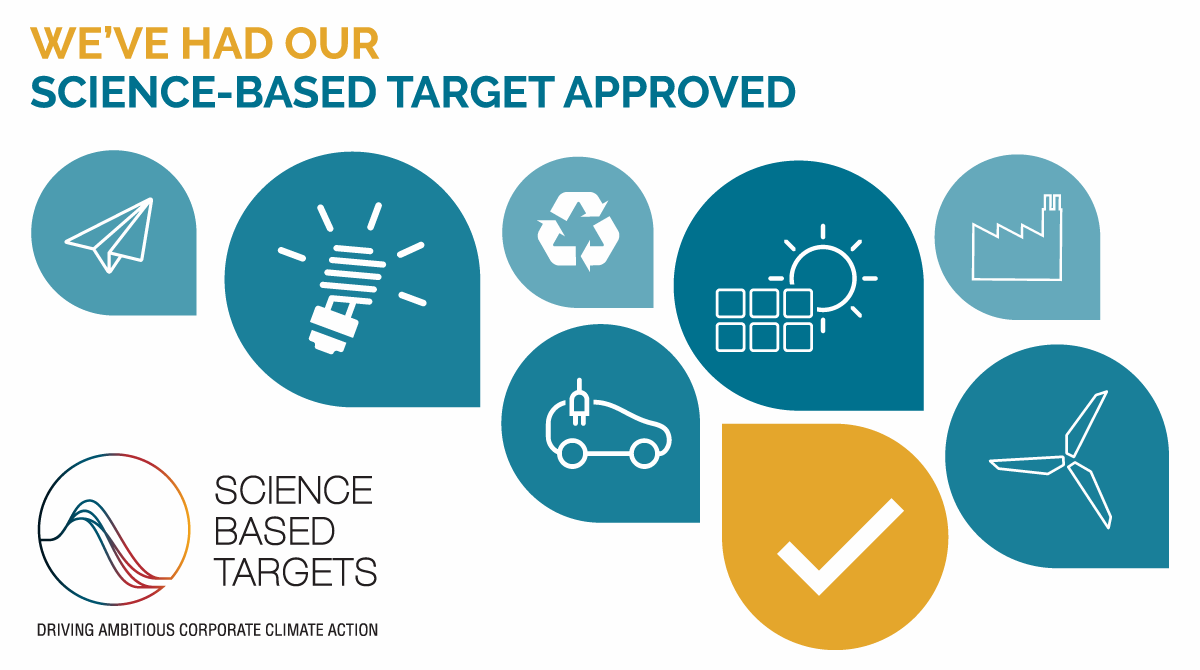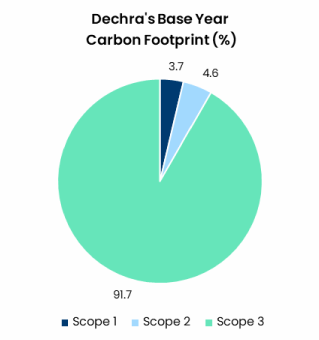Dechra is proving our commitment to building a sustainable future by letting the science dictate our course of action
Dechra’s near term science-based targets (SBT) have been approved by the Science Based Targets initiative (SBTi). These targets have been set as part of our sustainability commitment to drive climate action for a more resilient planet by reducing greenhouse gas (GHG) emissions across our value chain.

What is the Science Based Targets initiative?
The Science Based Targets initiative is a global body enabling businesses to set ambitious emissions reduction targets in line with the latest climate science. It is focused on accelerating companies to halve emissions before 2030 and achieve net-zero emissions before 2050 and strives to limit the global temperature increase in this century to 2°C while pursuing efforts to limit the increase further to 1.5°C.
What does this approval mean for Dechra?
The SBTi’s Target Validation Team has classified our near term target ambition and has determined that it is in line with a 1.5°C trajectory. They commend our 1.5°C-aligned target, currently the most ambitious designation available through the SBTi process.
This near term target approval means that by 2030, Dechra commits to:
-
reduce absolute Scope 1 and 2 GHG emissions by 42% from a 2021 base year carbon footprint calculation; and
-
reducing Scope 3 GHG emissions by 51.6% from a 2021 base year carbon footprint calculation per GBP value added.
As shown in the accompanying graph, our total footprint of 157kt Co2e is currently
dominated by Scope 3 at 91.7% with Scope 1 and 2 combined only accounting for 8.3%.

More about scopes
A company's direct and indirect emissions are grouped into one of three scopes. These emissions can occur throughout the process of business operations, whether upstream or downstream.
-
Scope 1 includes direct emissions from sources such as company facilities and vehicles
-
Scope 2 includes indirect emissions from purchased energy sources such as steam, electricity, and heating and cooling
-
Scope 3 includes all other indirect emissions sources that occur throughout the value chain such as transportation, employee travel, waste, fuel, end of life treatment, purchased goods and services, and leased assets
Next steps
Dechra has recently submitted our long term science-based targets and anticipates approval from the SBTi in early 2024. These targets aim to achieve at least 90% greenhouse gas emission reduction and reach net-zero carbon emissions by 2050. Regarding our business operations, we continue to focus on scaling up our efforts to reduce our GHG emissions in areas such as transportation, waste, energy usage, and manufacturing.
